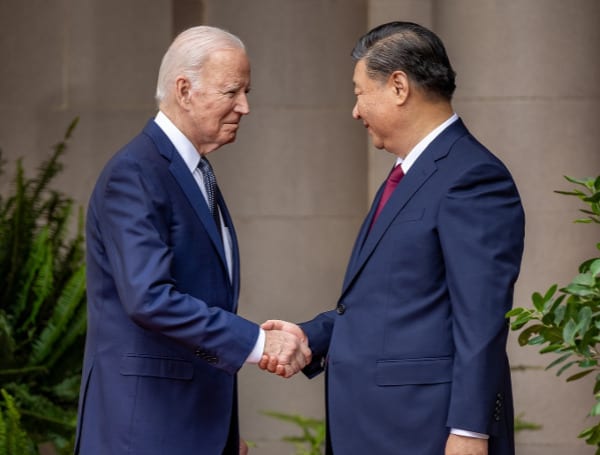A major American brand’s refusal to do business in a Chinese region known for slave labor is drawing retaliation from Beijing.
Under U.S. federal law, PVH — an American company with brands including Calvin Klein and Tommy Hilfiger in its portfolio — cannot do business in the Xinjiang province of China, as the region is infamous for slave labor, internment camps for religious minorities and various human rights abuses. The U.S. law applies to all American companies, but China has opened an investigation into PVH that has raised concerns Beijing intends to retaliate against foreign firms who won’t do business in Xinjiang, according to The New York Times.
“Since this investigation is the first of its kind, companies in all sectors have been forced to reassess what it means for them,” Sean Stein, the chairman of the American Chamber of Commerce in China, told the Times. “Many are seeing higher risk.”
The Chinese Ministry of Commerce said last week that it had opened an investigation into PVH over allegations that the company was taking “discriminatory measures” against products made in Xinjiang, the Times reported. In Beijing’s view, Xinjiang is crucial to domestic and foreign business; roughly 85% of China’s cotton is produced in Xinjiang, and other products such as batteries, solar parts and textiles are developed in the province as well, according to the Department of Labor.
China’s investigation aims to determine whether PVH violated state law by refusing to source cotton or clothing items from Xinjiang, according to the Times. The investigation is the first time China has broadened its legal code to assess which companies are violating state regulations by refusing to do business in Xinjiang.
Read: CNN’s Harry Enten Points To ‘A Bad Sign’ For Kamala Harris Ahead Of Election
It’s clear from the investigation that Beijing intends to take action against companies unwilling to work with Xinjiang, and that puts other foreign entities — specifically U.S. and European firms — in a legal bind.
“European companies find themselves increasingly caught between a rock and a hard place,” the European Union Chamber of Commerce in China said in a statement. “If they cease operations in, or sourcing from, regions like Xinjiang they may face a severe backlash from both government and consumers in China… if they stay, they risk negative consequences from their home and other international markets.”
It’s already considered risky for foreign companies to do business in China, and many multinational investors have started pulling their assets out of the country. Beijing has become increasingly hostile to foreign companies, imposes byzantine rules and regulations that make it difficult to do business, and in some cases arrested foreign businessmen for obscure or unknown reasons.
Read: MSNBC’s Joe Scarborough Says Kamala Harris ‘Trying To Be More Woke’ In 2019 Haunts Her 2024 Bid
China’s investigation in PVH could worsen foreign concerns, advisers for global companies told the Times.
“It is a serious and growing concern for many multinational corporations and may aggravate the incentive to decouple,” Lester Ross, the partner in charge of the Beijing office of Wilmer Hale, told the Times.
PVH didn’t immediately respond to a request for comment.
Please make a small donation to the Tampa Free Press to help sustain independent journalism. Your contribution enables us to continue delivering high-quality, local, and national news coverage.
Android Users: Download our free app to stay up-to-date on the latest news.
Connect with us: Follow the Tampa Free Press on Facebook and Twitter for breaking news and updates.
Sign up: Subscribe to our free newsletter for a curated selection of top stories delivered straight to your inbox.

First published by the Daily Caller News Foundation.

